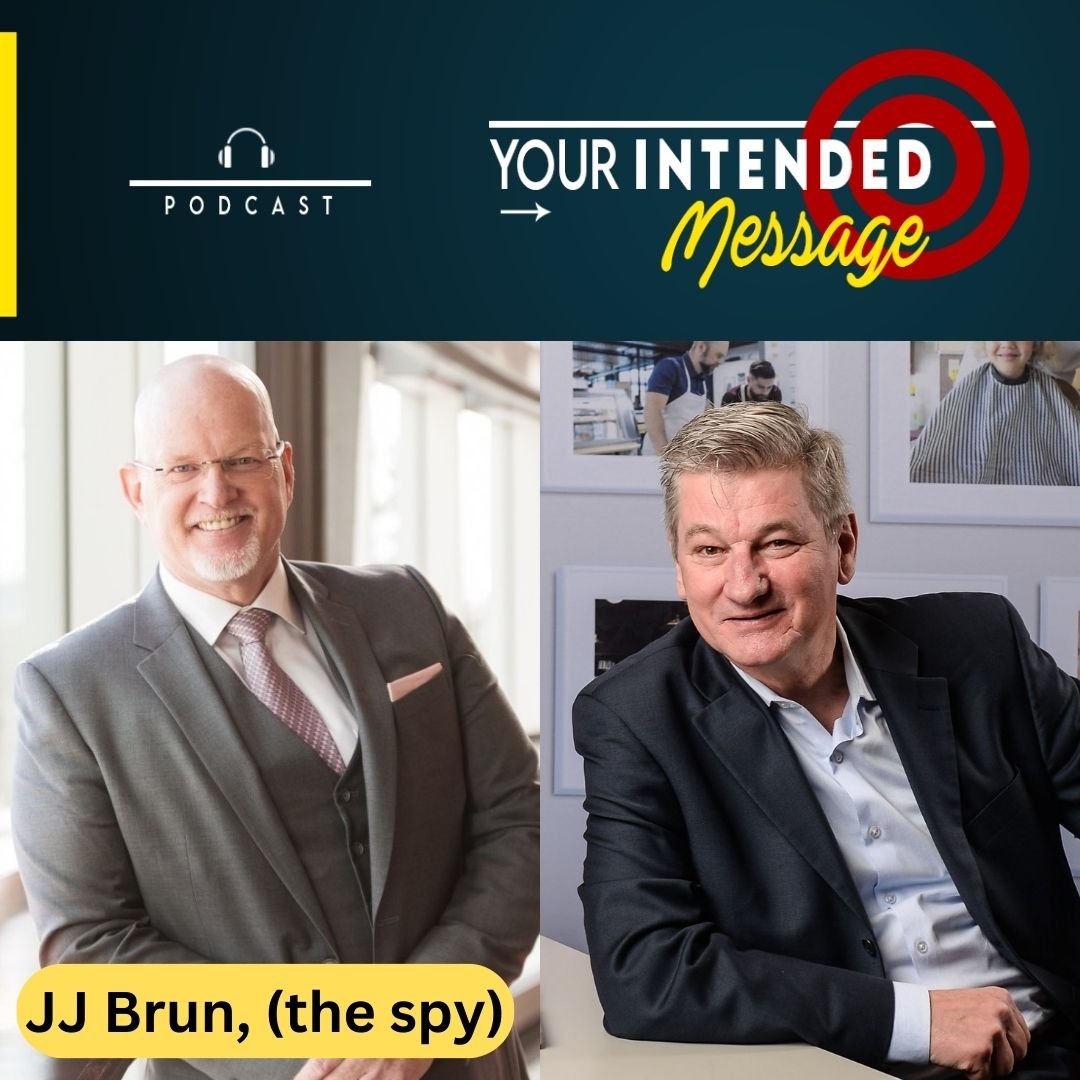How to communicate when you are a spy in a war zone: JJ Brun
The podcast episode features an interview with JJ Brun, a former contact handler for the military who collected intelligence in Bosnia during the war.
JJ shares his experience and skills needed to survive in a war zone, emphasizing the importance of building relationships and connecting with people across cultures. He discusses the four steps he uses to establish rapport and the value of understanding a person's preferred communication style.
JJ offers a complimentary 60-minute workshop on creating a common language in the workplace to promote inclusion, trust, and respect. The podcast host encourages listeners to take advantage of this opportunity to learn from a retired spy.
How to communicate when under extreme pressure - like a war zone
Introduction [00:00:03]
George introduces the podcast and his guest, JJ Brun, and shares three interesting facts about him.
JJ's background and training [00:02:08]
JJ explains his role as a contact handler and how he was trained in the UK to collect intelligence in Bosnia during the war.
Surviving in a war zone [00:07:19]
JJ discusses the unique skills and mindset he needed to survive in a war zone, including his ability to read people and communicate effectively to build relationships.
Building Relationships as a Contact Handler [00:11:04]
JJ Brun discusses the importance of building relationships as a contact handler in Bosnia during the war and the skills needed to connect with people across cultures.
The Four Steps to Connecting [00:16:13]
JJ Brun outlines the four steps to establishing and maintaining rapport with people: listening, observing, discerning, and speaking.
Effective Icebreaking Questions [00:19:31]
JJ Brun shares the 10 most effective feel-good icebreaking questions he used to connect with people, including asking about their family, occupation, and hobbies.
Establishing Rapport [00:26:59]
JJ discusses the four steps of establishing rapport: listening, observing, discerning, and speaking.
Working with Hardliners [00:22:54]
JJ talks about his experience working with hardliners in Bosnia during the war and the challenges he faced.
Decoding Communication Styles [00:29:15]
JJ explains his approach to decoding one's preferred communication style using the four temperament model and the pace and priority perspectives.
Decoding Human Capital [00:31:49]
JJ Brun discusses how to decode a person's preferred communication style based on their pace and priority perspective.
Making a Connection [00:34:18]
JJ Brun shares how learning to pronounce a person's name in their native language can create an instant connection and build a relationship.
Contacting JJ Brun [00:38:53]
JJ Brun offers a list of 10 icebreaking feel-good questions and a 30-minute complimentary session. Contact him via email at hello@theretiredspy.com.
Making sense of the people puzzle [00:41:25]
JJ Brun offers a complimentary 60-minute workshop on creating a common language in the workplace to promote inclusion, trust, and respect.
Complimentary workshop offer [00:43:04]
George Torok emphasizes that JJ Brun's workshop is free and encourages listeners to take advantage of the opportunity to learn from a retired spy.
Connecting with your intended message [00:43:33]
George Torok concludes the episode and reminds listeners to like, comment, and share the podcast for more practical insights on conveying their intended message.
In this week's episode of "Your Intended Message," I had the pleasure of interviewing JJ Brown, a former contact handler for the military who collected intelligence in Bosnia during the war. JJ shared his unique experiences and insights on how to establish rapport with individuals in order to collect intelligence effectively.
JJ explained that his ability to get out of tough situations depended on his ability to message his way out of them. He had learned behavioral models to better understand how to read people and discern their preferred communication style to build professional relationships that would give him the benefit of the doubt. JJ's experience highlights the importance of building relationships and connecting with people, even in challenging and dangerous situations.
JJ also shared his 10 most effective feel-good icebreaking questions, which he used to connect with people and learn about their interests, family, and occupation. By doing so, he was able to establish trust and build relationships with people, even those who were considered "bad guys." JJ's approach allowed him to provide a voice for those who wanted to be heard and to convey their messages to his commanding officer.
JJ's experience in Bosnia taught him the importance of framing messaging to be received effectively and the value of using models to better understand human behavior. He also emphasized the significance of learning how to pronounce a person's name correctly in their native language, as it demonstrates care and can help build a connection.
In wrapping up, JJ offers advice to team leaders on how to keep their teams cohesive during times of crisis and change, emphasizing the importance of communication and understanding individual communication styles. He also offers a complimentary 60-minute workshop on creating a common language in the workplace to promote inclusion, trust, and respect.
I highly recommend tuning in to this episode to learn from a retired spy who returned all 10 bullets. Don't forget to like, comment, and share the podcast and to come back every week for more practical insights on conveying your intended message.

